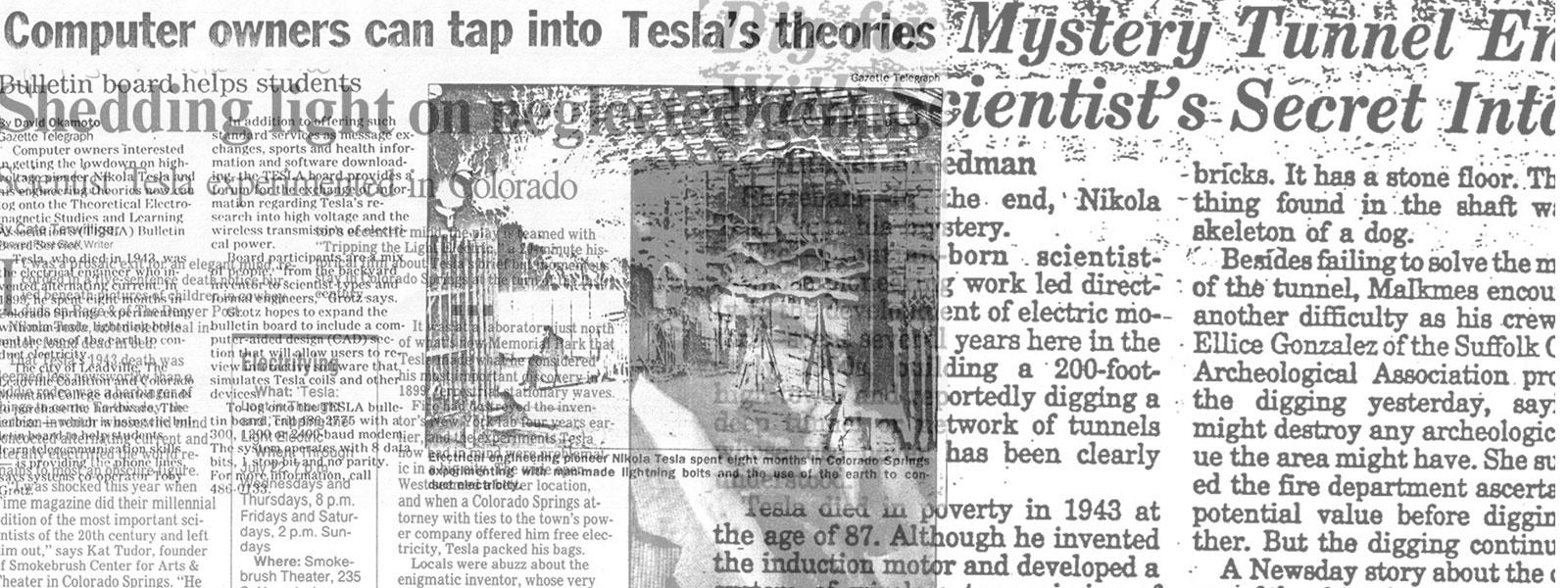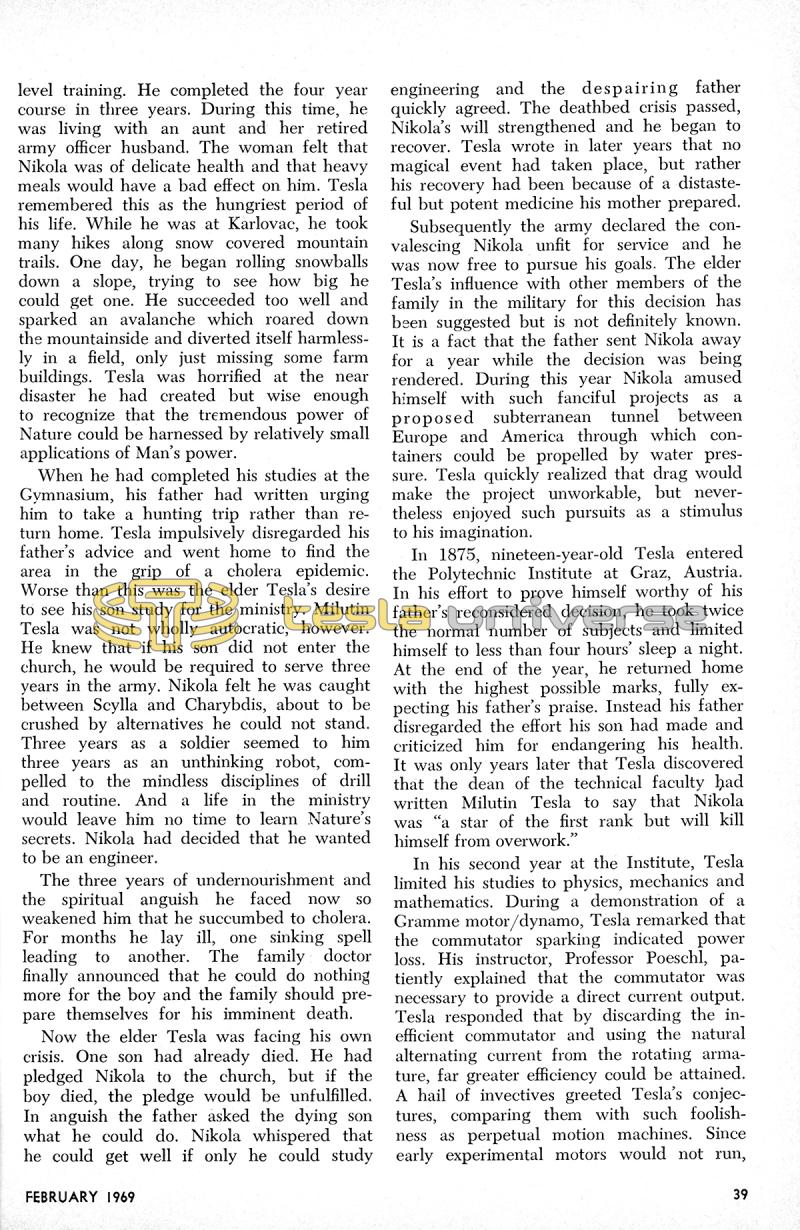
Nikola Tesla Articles
Nikola Tesla - Master of Electrical Energy Page 2
73 Magazine - February 1st, 1969
level training. He completed the four year course in three years. During this time, he was living with an aunt and her retired army officer husband. The woman felt that Nikola was of delicate health and that heavy meals would have a bad effect on him. Tesla remembered this as the hungriest period of his life. While he was at Karlovac, he took many hikes along snow covered mountain trails. One day, he began rolling snowballs down a slope, trying to see how big he could get one. He succeeded too well and sparked an avalanche which roared down the mountainside and diverted itself harmlessly in a field, only just missing some farm buildings. Tesla was horrified at the near disaster he had created but wise enough to recognize that the tremendous power of Nature could be harnessed by relatively small applications of Man's power.
When he had completed his studies at the Gymnasium, his father had written urging him to take a hunting trip rather than return home. Tesla impulsively disregarded his father's advice and went home to find the area in the grip of a cholera epidemic. Worse than this was the elder Tesla's desire to see his son study for the ministry. Milutin Tesla was not wholly autocratic, however. He knew that if his son did not enter the church, he would be required to serve three years in the army. Nikola felt he was caught between Scylla and Charybdis, about to be crushed by alternatives he could not stand. Three years as a soldier seemed to him three years as an unthinking robot, compelled to the mindless disciplines of drill and routine. And a life in the ministry would leave him no time to learn Nature's secrets. Nikola had decided that he wanted to be an engineer.
The three years of undernourishment and the spiritual anguish he faced now so weakened him that he succumbed to cholera. For months he lay ill, one sinking spell leading to another. The family doctor finally announced that he could do nothing more for the boy and the family should prepare themselves for his imminent death.
Now the elder Tesla was facing his own crisis. One son had already died. He had pledged Nikola to the church, but if the boy died, the pledge would be unfulfilled. In anguish the father asked the dying son what he could do. Nikola whispered that he could get well if only he could study engineering and the despairing father quickly agreed. The deathbed crisis passed, Nikola's will strengthened and he began to recover. Tesla wrote in later years that no magical event had taken place, but rather his recovery had been because of a distasteful but potent medicine his mother prepared.
Subsequently the army declared the convalescing Nikola unfit for service and he was now free to pursue his goals. The elder Tesla's influence with other members of the family in the military for this decision has been suggested but is not definitely known. It is a fact that the father sent Nikola away for a year while the decision was being rendered. During this year Nikola amused himself with such fanciful projects as a proposed subterranean tunnel between Europe and America through which containers could be propelled by water pressure. Tesla quickly realized that drag would make the project unworkable, but nevertheless enjoyed such pursuits as a stimulus to his imagination.
In 1875, nineteen-year-old Tesla entered the Polytechnic Institute at Graz, Austria. In his ort to prove himself worthy of his father's reconsidered decision, he took twice the normal number of subjects and limited himself to less than four hours' sleep a night. At the end of the year, he returned home with the highest possible marks, fully expecting his father's praise. Instead his father disregarded the effort his son had made and criticized him for endangering his health. It was only years later that Tesla discovered that the dean of the technical faculty had written Milutin Tesla to say that Nikola was "a star of the first rank but will kill himself from overwork."
In his second year at the Institute, Tesla limited his studies to physics, mechanics and mathematics. During a demonstration of a Gramme motor/dynamo, Tesla remarked that the commutator sparking indicated power loss. His instructor, Professor Poeschl, patiently explained that the commutator was necessary to provide a direct current output. Tesla responded that by discarding the inefficient commutator and using the natural alternating current from the rotating armature, far greater efficiency could be attained. A hail of invectives greeted Tesla's conjectures, comparing them with such foolishness as perpetual motion machines. Since early experimental motors would not run,
